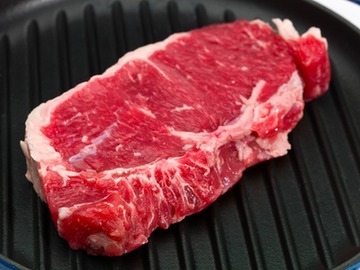Former US President Donald Trump Shot But Escapes Assassination Attempt
Recent study published in International Journal of cancer revealed that consumption of red meat might increase the risk of breast cancer. Researchers from the National Institute of Environmental Health Sciences in the US have reported that while eating more red meat is linked with a significant risk of developing invasive breast cancer, consumption of poultry products such as chicken, turkey and duck is associated with a decreased risk of the disease. This group identified red meat as a probable carcinogen.
This new study observed that women who switched to poultry from red meat were 28% less likely to have breast cancer. Thus, those who consume more poultry products saw their breast cancer chances drop by 15%.
This study contributes to the evidence on red meat and cancer, as previous research has found strong proof that red meat increases the risk of numerous cancers such as bowel cancer as well as heart disease.
Breast cancer is an invasive uncontrollable tumor that forms in the cells of the breast. Several symptoms has been linked with breast cancer, but the first detectable symptom is often a lump (localized swelling/bump in the breast).
Breast lumps in women does not necessarily mean one have cancer because most lumps are not cancerous. Breast cancer is the most common cancer diagnosed in women and mortality rates from this disease are the highest globally.
Significant support for breast cancer awareness and research funding has helped created advances in its diagnosis and treatment.
Breast cancer survival rates have increased, and the number of deaths associated with this disease is steadily declining, largely due to factors such as earlier detection, a new personalized approach to treatment and a better understanding of the disease.
Researchers are working to discover better ways to prevent and treat breast cancer patients, as well as improve their quality of life. Some of the active areas of research include breast cancer causes, treatment of metastatic breast cancer, and reduction of breast cancer risk.
Studies continue to reveal lifestyle factors and habits, as well as inherited genes, that affect breast cancer risk. Several studies are looking at the effect of exercise, weight gain or loss, and diet on risk.
Though, this study is observational in design, meaning that ‘cause and effect’ relationships are difficult to determine, and it is also crucial to remember that ‘association’ does not imply ‘causation’. Thus, this does not rule out red meat because red meat is an important source of good quality protein, and the key micronutrients such as iron and zinc are extremely important for women of childbearing age. Balance is the key
Source: Healthnews.ng










